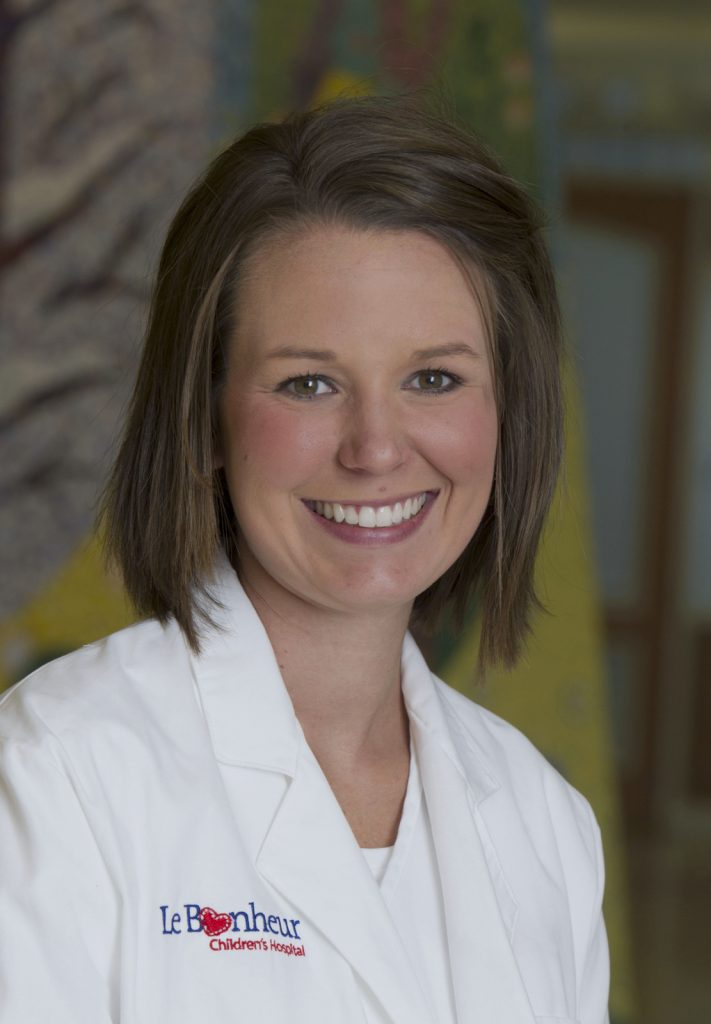The University of Tennessee Health Science Center’s College of Nursing has received a three-year, $1.5 million grant from the Department of Health and Human Services Health Resources and Services Administration (HRSA) to fund a much-needed expansion of Sexual Assault Nurse Examiner (SANE) training and certification in West Tennessee.
SANE programs are designed to train nurses to address survivors’ needs and provide trauma-informed care. The 21 counties of West Tennessee have only five certified SANE nurses, four of whom practice in Shelby County. But the Tennessee Bureau of Investigation received nearly 1,600 reports of sexual assault in West Tennessee in 2019, indicating a significant shortage of nurses certified to meet the need for this care.

Andrea Sebastian, DNP, PNP, SANE-P, an assistant professor in the UTHSC College of Nursing, has worked as a child abuse nurse practitioner for the last seven years at Le Bonheur Children’s Hospital and will serve as project manager of the SANE Training and Education through Partnerships for Underserved Populations (STEP UP) grant.
“During this time, I have recognized the importance of SANE nurses in our community. Currently, we do not have enough SANE nurses in West Tennessee to provide exams and resources to victims,” Dr. Sebastian said. “With this grant, we will be able to increase access to these invaluable resources and help victims of sexual assault in our community.”
The UTHSC team will work with West Tennessee Healthcare, the Shelby County Crime Victims and Rape Crisis Center, and the Whiteville Family Medical Clinic on the project. The team’s goal is to transform the nursing workforce by increasing the supply, distribution, and retention of certified SANEs and improving access to timely, expert care for all sexual assault survivors in West Tennessee.
Assistant Professor Christie Manasco, PhD, RN, is one of the co-investigators on the grant. “The funding from this grant will significantly help us close the gaps to equitable SANE care in West Tennessee. The efforts supported by these funds will help us to reduce inequalities and disparities and promote better outcomes for survivors,” she said.
Beginning in July, the STEP UP grant team will launch a plan to recruit up to 61 registered nurses or advanced practice registered nurses (APRNs) from the West Tennessee counties, with a focus on the rural and underserved areas. The grant will pay for participants to earn certifications through community or academic programs for adult and pediatric patients, known as SANE-A® and SANE-P®.
The grant team will also work with regional stakeholders to develop and implement a regional Sexual Assault Response and Resource Team (SARRT) that will assess the needs for sexual assault services in the area, reduce barriers to SANE training, and coordinate SANE clinical training opportunities. Grant funding also will be used to develop and provide resources for SANE self-care, peer mentoring, continuing education, and recertification.
Dr. Sebastian will be supported on this grant by co-investigators including Dr. Manasco, Assistant Professor Lisa Beasley, DNP, APRN, NP-C, RN; Assistant Professor Sally Humphrey, DNP, ARN, CPNP-PC; and Assistant Professor Diana Dedmon, DNP, FNP-BC, director of Clinical Affairs. College of Nursing Dean Wendy Likes, PhD, DNSc, APRN-Bc, FAANP, will serve as women’s health adviser on the grant, and the program coordinator for the Doctor of Nursing Practice DNP program, Trimika Bowdre, PhD, MPH, will be the evaluation adviser.
“The College of Nursing is very grateful for the funding to support this important work of providing appropriate care to this very vulnerable group of people,” Dr. Likes said. “The need for this in West Tennessee is beyond question. I personally look forward to working with this team in the College of Nursing and our community partners to provide this vital service to our communities.”
